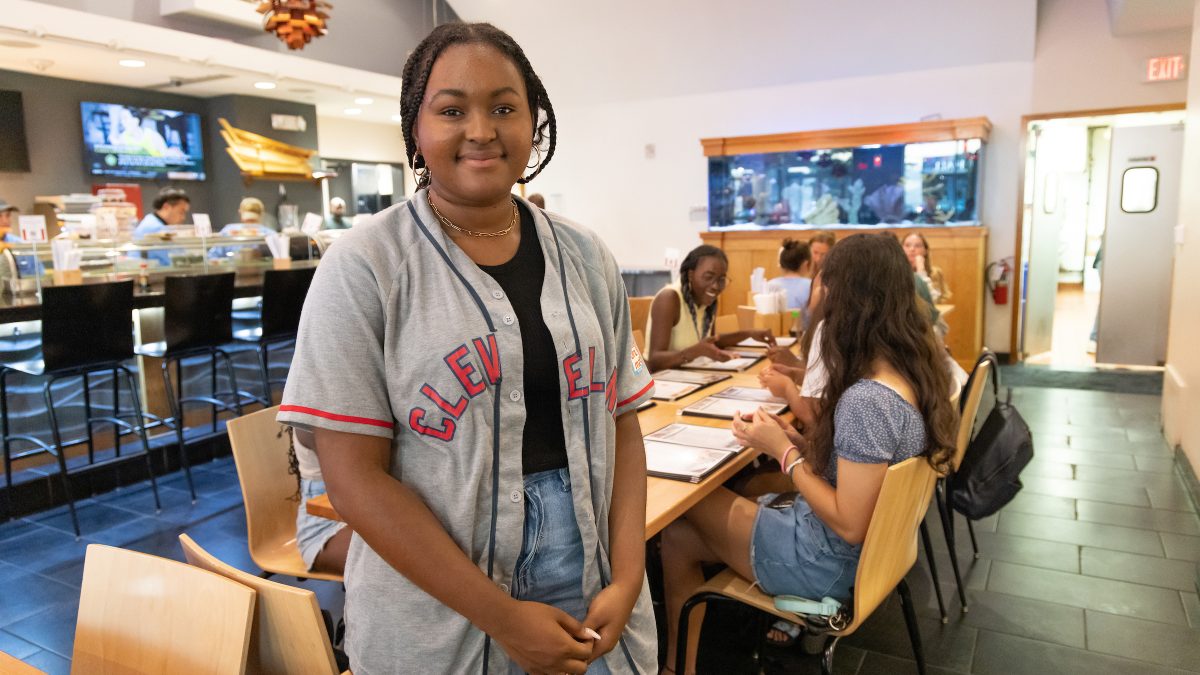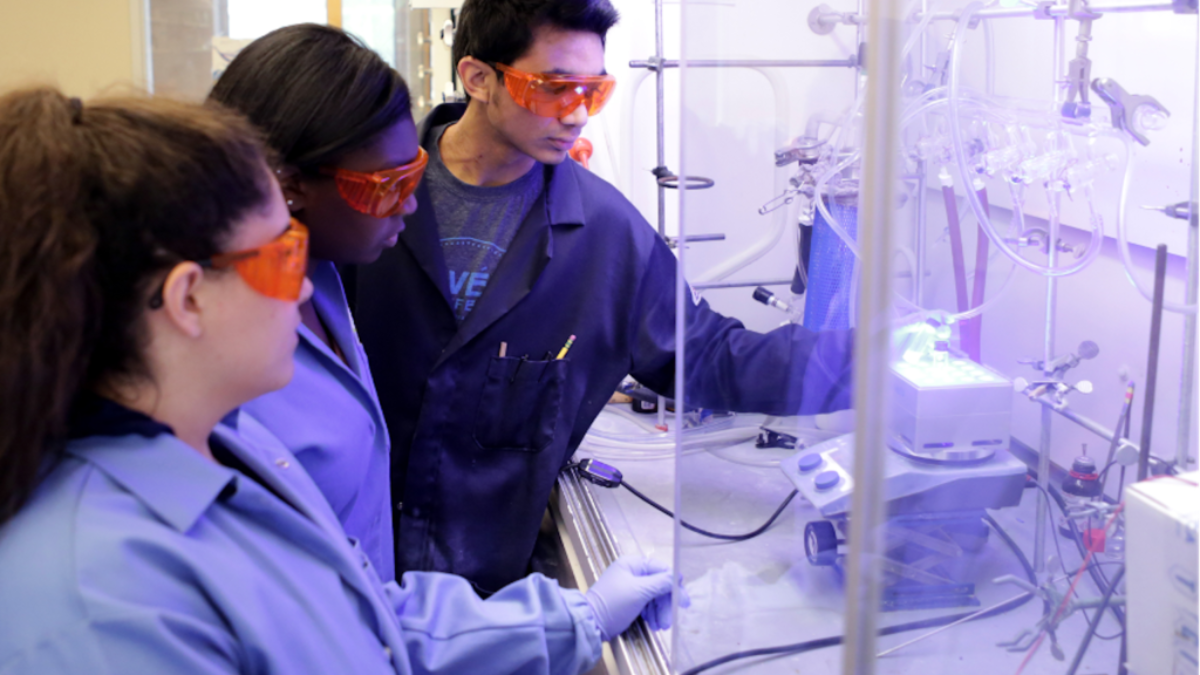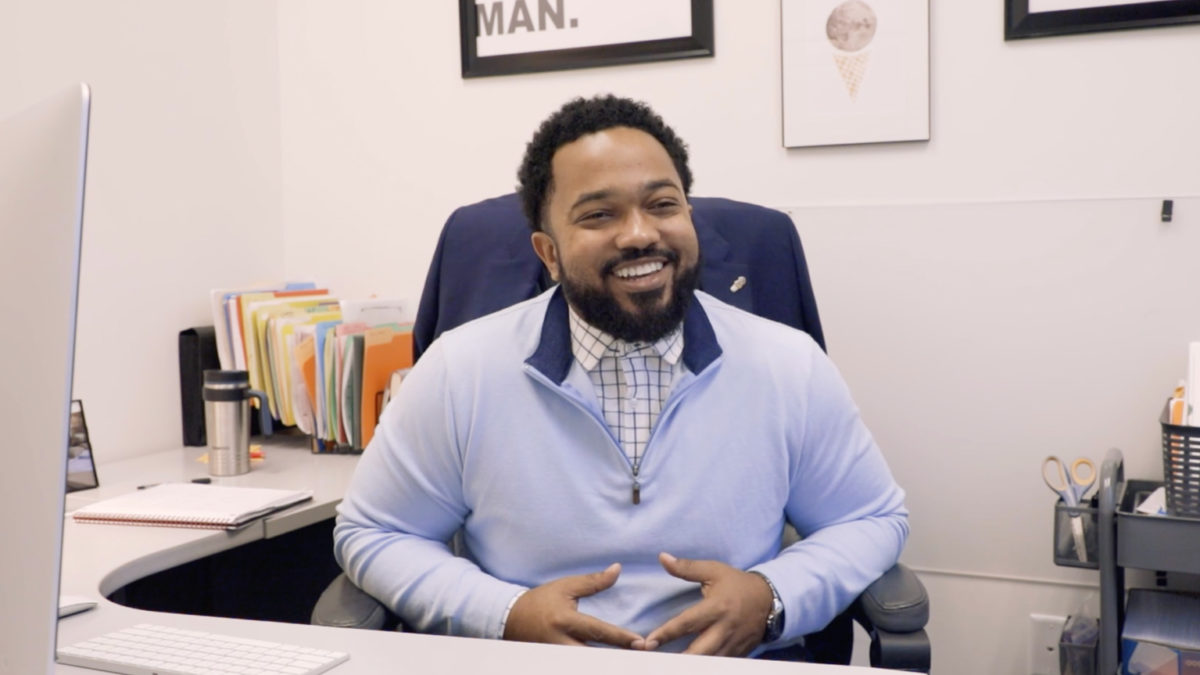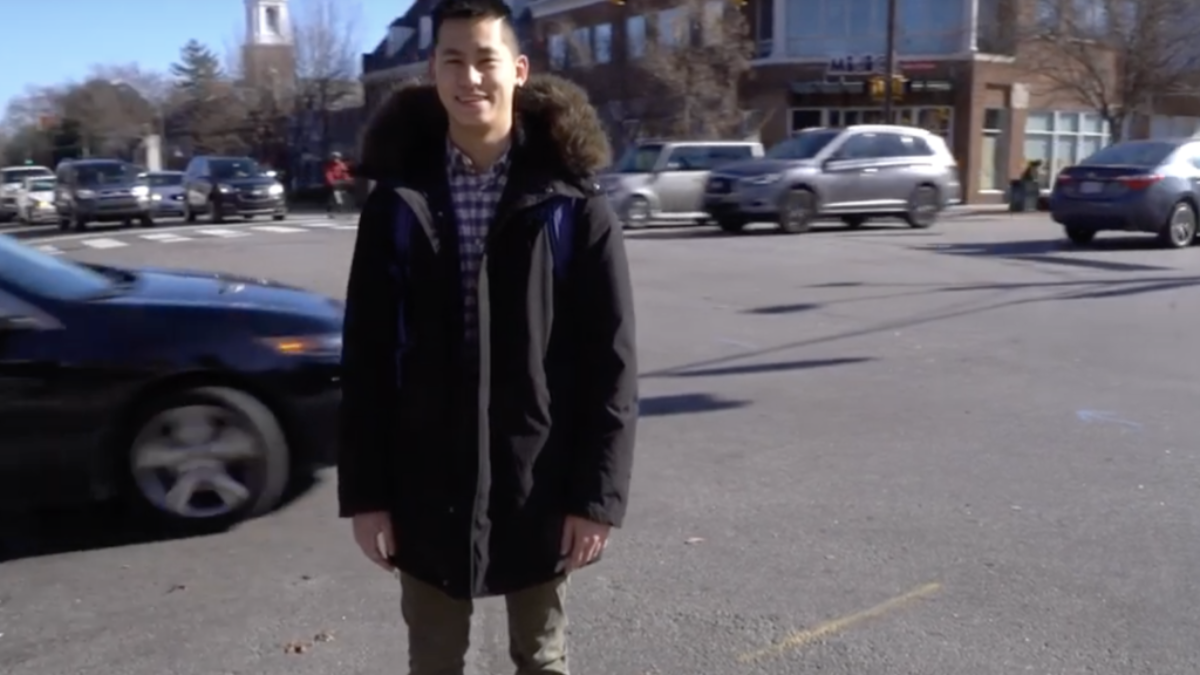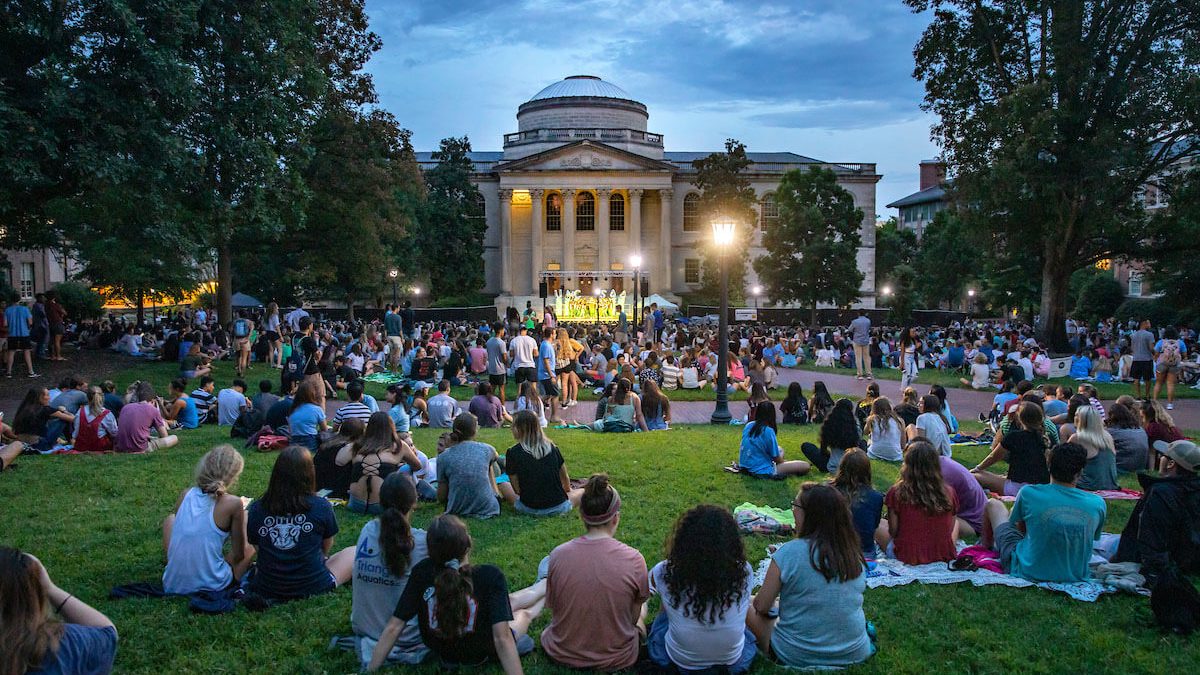Humanity Is Why We Do It
"The universe is made of stories, not of atoms."
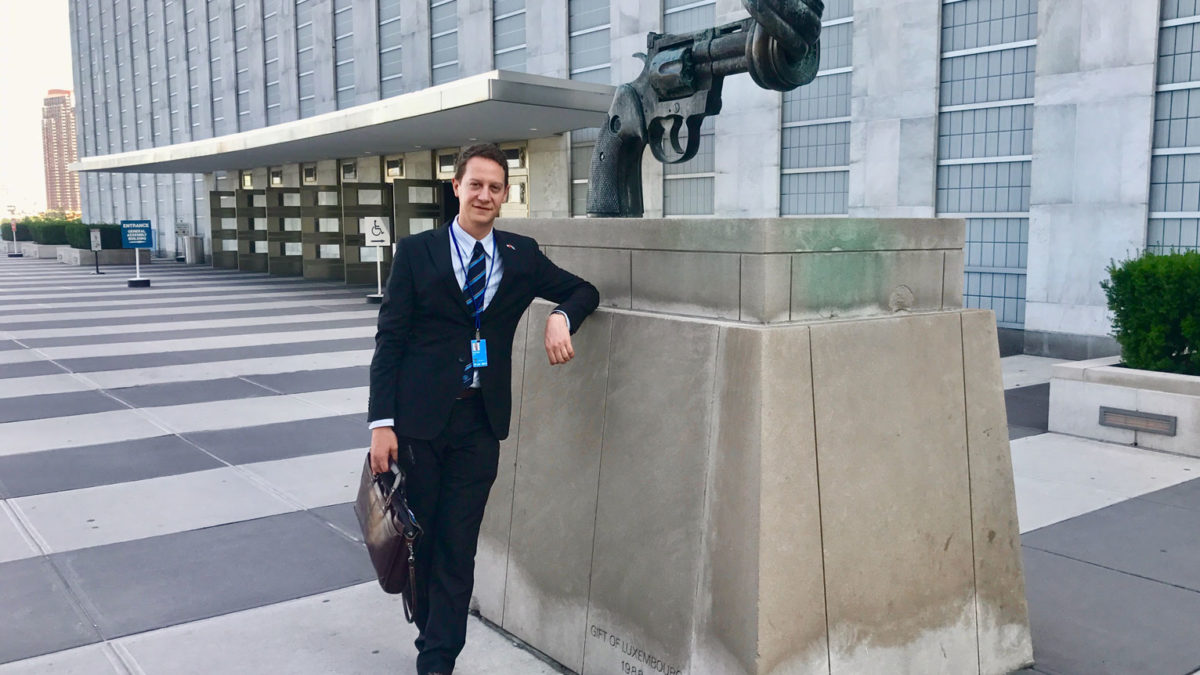
"The universe is made of stories, not of atoms."
Born and raised in a musical family in Brooklyn, Seth Shelden ’98 self-admittedly knew little about the world beyond the northeast; it seemed unlikely he would head elsewhere for college. The Morehead-Cain Scholarship program both introduced him to Carolina and made it possible for him to attend.
“I credit Chapel Hill itself, however, for being irresistible,” said Shelden.
Once on campus, he jumped head first into drama and music, becoming one of the first producers at Company Carolina, and he also enrolled in an introductory political science course with professor Eric Mlyn, captivating Shelden from the start. He followed Dr. Mlyn through several more courses, including one related to nuclear weapons policy. Shelden pursued a degree in international studies and completed a senior thesis on the Israeli nuclear weapons program.
As Shelden considers it, Carolina served as a launching pad for all that would come after. He went to law school, studying intellectual property law; today he practices law in New York City and is an adjunct professor at the City University of New York School of Law. He continues to perform, sharing screens and stages with fellow Tar Heels, including Fred Weller, Anthony King and Tessa Blake; he’s also spent the past five years helping bring to lifeOpens in new window the first-ever revival of the Marx Brothers’ first-ever Broadway show.
But it was in 2016 when he was returning from a Fulbright-sponsored program teaching law in Japan that he heard the United Nations General Assembly had adopted a resolution to begin negotiating a legally-binding treaty to prohibit nuclear weapons. He knew little about the players or who to speak to about it, but he knew he wanted to help. A series of conversations later, and Shelden was working with ICANOpens in new window — the International Campaign to Abolish Nuclear Weapons, which is a coalition of non-governmental organizations in more than 100 countries promoting the ban of nuclear weapons.
Flash forward to July 7, 2017 — a day Shelden calls “one of the most thrilling days of [his] life” — when 122 U.N. member states voted to adopt the Treaty on the Prohibition of Nuclear Weapons. Later that year, Shelden and his ICAN teammates headed to Norway for ICAN to receive the Nobel Peace Prize, which they won for their work in making that treaty a reality.
Today he serves as the United Nations Liaison for ICAN in New York, but continues to teach and practice law, and to perform in music and arts. With such varied interests and achieving at such high levels of each, how does Shelden find connection between them all?
“I think that the common denominator among these seemingly-disparate interests might be the pursuit of truth. Each of these — law, activism, teaching, acting, music — requires a similar undertaking: to explore what’s true — whether about a person, a country or even a fictional character — and to fight for what’s right — whether through law, advocacy or storytelling.
“An even more common denominator, perhaps, is humanity itself, and thinking about why we survive. Sometimes I think about this quote from Muriel Rukeyser, in The Speed of Darkness: ‘The universe is made of stories, not of atoms.’ I think that when it comes to the world’s great existential threats, preserving humanity’s survival through stronger laws and norms is what we strive for, but as to the why … for me, art, love, and humanity is why we do it.”.
